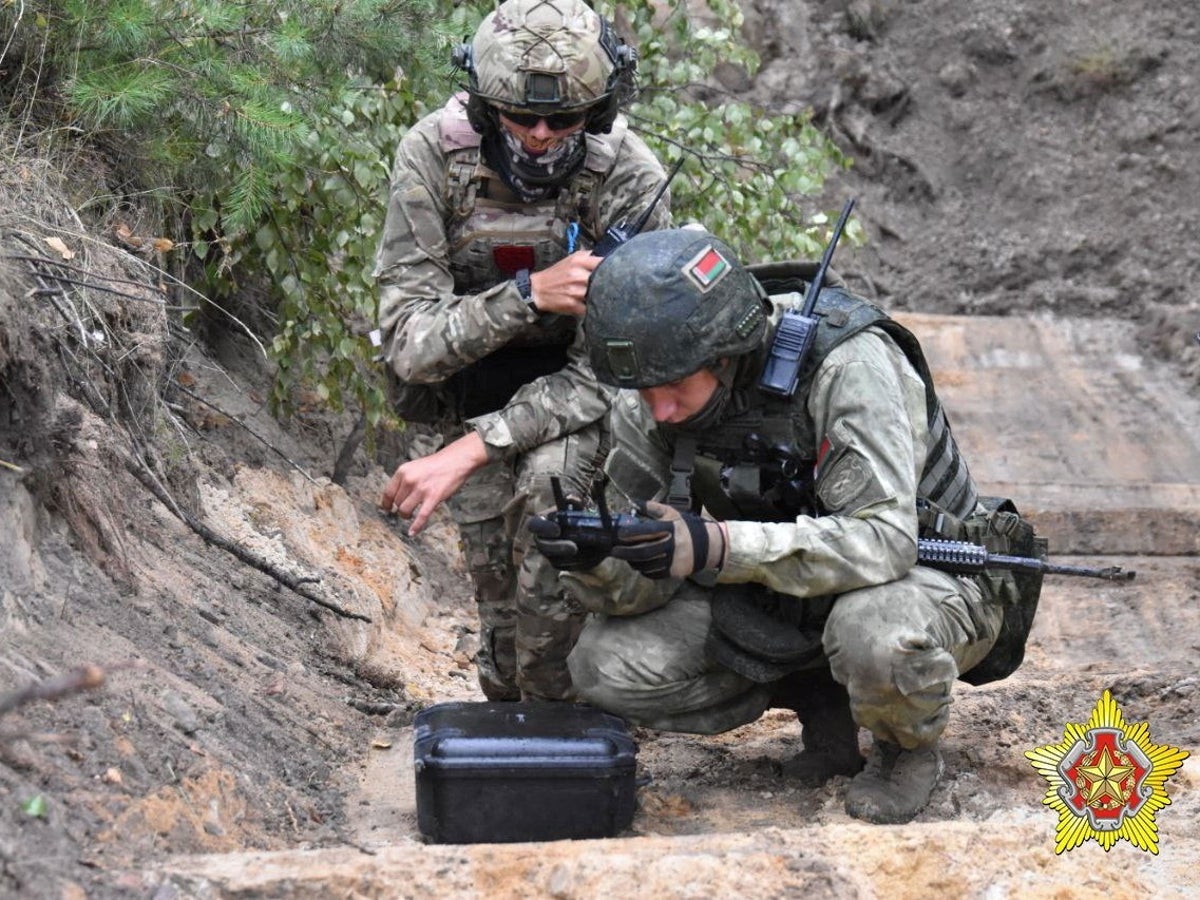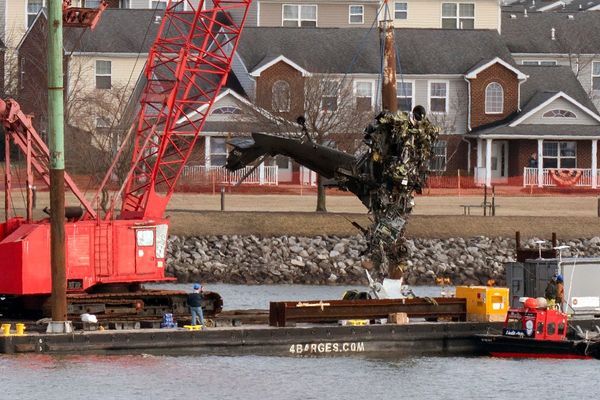
Wagner mercenaries are training Belarusian special forces just a few miles from the border with Nato-member Poland.
Warsaw said that it was ready for “various scenarios as the situation develops” – having started moving around 1,000 of its own troops towards the border earlier this month.
Wagner chief Yevgeny Prigozhin was shown in a video on Wednesday welcoming his fighters to Belarus, telling them they would take no further part in the Ukraine war for now but ordering them to gather their strength for Africa while they trained the Belarusian army. Mr Prigozhin, who agreed to move to Belarus as part of a deal to end a mutiny by his forces that rattled Russian President Vladimir Putin last month, said what is happening with Russian forces on the Ukraine frontline is a “disgrace” and that his group wants “no part of it”.
Minsk posted pictures of masked Wagner instructors, their faces covered in accordance with the mercenary group's rules, training Belarusian soldiers with armoured vehicles and what appear to be drone controls. “The armed forces of Belarus continue joint training with the fighters of the Wagner PMC (Private Military Company),” the Belarusian Defence Ministry said.
“During the week, special operations forces units together with representatives of the Company will work out combat training tasks at the Brest military range.” That range is just three miles (5km) east of the Polish border.
According to claims in a post by a senior Wagner commander, known by his nom de guerre “Marx”, which was republished by Wagner's Telegram channel, up to 10,000 fighters “have gone, or will go” to Belarus. Although the accuracy of that statement is difficult to verify.
Poland's Defence Ministry said the country's borders were secure. In response to Warsaw reinforcing its border, the Kremlin tried to paint it as an “aggressive” move – despite Moscow's invasion of Ukraine being the ultimate genesis of it.
“Of course it is a cause for concern. The aggressiveness of Poland is a reality,” Kremlin spokesman Dmitri Peskov said. “Such a hostile attitude towards Belarus and the Russian Federation requires heightened attention [from our side].”
A video released on Wednesday appears to show Russian mercenary chief Yevgeny Prigozhin in Belarus— (AP)
As part of the deal that ended the 24-hour uprising by Wagner, which involved the groups forces marching towards Moscow – eventually stopping about 125 miles from the capital – mercenaries could move to Belarus in return for charges against them being dropped. Putin said the fighters could either leave for Belarus, come under the command of the defence ministry or go back to their families.
The episode exposed cracks in the Russian leader's authority, almost 18 months into an invasion that the Kremlin originally assumed would only last weeks. While Mr Putin has tried to put on the air of everything is business as usual, rumblings of discontent in the Russian military over the situation in Ukraine have bubbled to the service in a way rarely seen in the tightly-controlled world of the Kremlin.
The mutiny started after weeks of complaints from Prigozhin about the state of the war, although he has been careful to state that his ire is aimed at Russia's military top brass and the country's Defence Ministry, not Putin himself. He believed that his fighters were not being supported in the fierce fighting around the symbolic city of Bakhmut in eastern Ukraine.
Wagner has lost 22,000 of its men in the Ukraine war while 40,000 have been wounded, according to the Wagner commander “Marx”. If accurate, those numbers give an insight into the extent of the losses both sides are suffering in the war. The commander said in his post that a total of 78,000 Wagner men had participated in what he cast as “the Ukrainian business trip”, 49,000 of them prisoners.
Wagner helped Russia to illegally annex Crimea from Ukraine in 2014 and have fought Isis in Syria and operated in the Central African Republic and Mali in recent years.
“Up to 10,000 fighters have gone or will go to Belarus,” the commander said. “About 15,000 have gone on holiday.”
The post contradicted remarks by a Russian who said that as many as 33,000 Wagner fighters had signed contracts with the Russian Defence Ministry.
“If all the dead and those who went on holiday signed up then I suppose it is possible,” the commander Marx said.
Reuters contributed to this report







